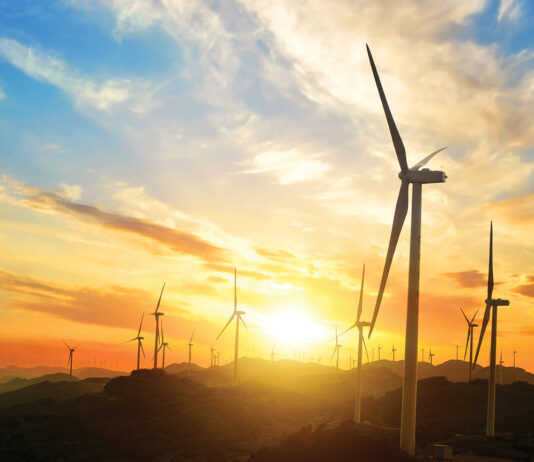
As much of the world continues to battle with energy shortages and rising oil and gas prices, it has become clear just how much we continue to rely on a few specific powers to provide the world with much-needed fossil fuels. While a comprehensive transition to green energy sources remains several years off, North America and Europe continue to maintain ties with several powers that are viewed as flawed in terms of their politics and social policy. And yet, the U.S, Canada, and the E.U. maintain their diplomatic relations with countries such as Saudi Arabia, Russia, and Venezuela as a means of ensuring their energy security. So, as sanctions are being introduced on certain countries, for human rights abuses, nuclear action, and unjust conflict, will the West shift its reliance away from controversial powers, or will it continue to rely on them to meet its rising energy needs?
The North American and European reliance on Russian oil and gas became increasingly evident after it invaded Ukraine and subsequent sanctions were imposed on Russian energy. Moving away from Russian oil and gas has been no easy feat, with the Western powers quickly scrambling to find other energy-rich countries to fill the gap in demand.
Earlier this month, when OPEC+ announced it would be cutting oil production across member states by 2 million bpd in the winter months, the U.S. was outraged, worried about how this may affect its energy security, as oil prices are already beginning to rise again. But critics suggest that America’s heavy reliance on the Saudi-dominated OPEC group is concerning. Saudi Arabia has been repeatedly called out for committing human rights abuses, which would typically be condemned by North America and Europe. However, instead of criticizing the political actions of Crown Prince Mohammad bin Salman, President Biden has traveled to plea with the Saudi leader to raise oil output on several occasions.
OPEC made it clear that the reduction in oil output was a precautionary move in response to the declining economic activity being seen worldwide. The move was made to avoid the need to stockpile crude following a rapid drop in demand, as was seen during the Covid pandemic, sending oil prices plummeting. However, National Security Council spokesman John Kirby suggested that Saudi Arabia’s decision was supporting Russian energy revenues while hindering the success of Western sanctions on Russia, for the war in Ukraine.
Since the Russian invasion of Ukraine and subsequent oil and gas shortages, the U.S. has looked to other oil-rich powers to fill the gap. This includes readdressing some decisions over oil and gas sanctions, with discussions about whether to allow Venezuela and Iran to pump crude once again. While no action has been taken to halt these sanctions, many question whether shifting reliance from one dictator to another would be the right move.
There was speculation earlier in the year about whether the U.S. would ease its sanctions on Venezuelan oil in light of global oil shortages and new sanctions on Russian crude. Although due to the length of time Venezuela has gone without using its oil-producing infrastructure, it is not possible to rapidly increase output. However, this month, the Biden Administration stated plans for reducing sanctions on President Madero’s government to allow Chevron Corp to resume crude production in the South American oil-rich state. In exchange, Biden would require Madero to resume discussions with his political opposition, to hold free and fair presidential elections in 2024.
There was also hope earlier in the year that a new nuclear agreement would be reached between the U.S. and Iran, which would result in dropping sanctions on Iranian crude. But a new deal has failed to come to fruition due to ongoing disagreements between the two powers and the recent breakdown in negotiations. Although sanctions are still in place, the U.S. has largely overlooked Iran’s attempts to build up oil supplies for export over the last year. In September, Iran had an estimated 93 million barrels of its crude and condensate on ships in the Persian Gulf for export.
However, Biden appears to finally be cracking down on Iran, as the U.S. has now imposed sanctions on companies it accuses of being involved in Iran’s petrochemical and petroleum trade, including several Chinese companies. The Treasury’s Under Secretary for Terrorism and Financial Intelligence Brian Nelson stated, “So long as Iran refuses a mutual return to full implementation of the Joint Comprehensive Plan of Action, the United States will continue to enforce its sanctions on the sale of Iranian petroleum and petrochemical products.”
While the U.S. appears to be putting the nuclear deal with Iran on hold for now, doubling down on its sanctions, this may not be the case for long if global oil shortages continue in the face of rising demand and OPEC cuts. Meanwhile, Biden appears willing to make a deal with Venezuela or any other oil power that is open to making a diplomatic arrangement, regardless of their social and political stance. So, can the West break its oil and gas addiction and stop its reliance on these dictatorships? It seems that this may happen eventually as the world transitions away from fossil fuels to renewable alternatives. But, for now, this seems unlikely.

Felicity Bradstock is a freelance writer specializing in Energy and Industry. She has a Master’s in International Development from the University of Birmingham, UK, and is now based in Mexico City.
If you would like to contact our staff writers, you can reach them at [email protected]
Get the Real Story with Shale Magazine
At Shale Magazine, our sole mission is to look at the facts from an objective angle and report on current events that matter most to energy industry stakeholders. Actions like the Whitehouse unfairly characterizing oil and gas profits as “evil” while Texas plans to divest from ESG funds showcases where both sides certainly have a long way to go. Shale Magazine offers fresh insights into every issue by never shying away from a story and sticking with the facts. Make sure to check out our latest issues to stay in the know about all things energy. You’ll find great opportunities for networking and events, exclusive interviews and one-on-ones with top industry execs, and all the latest news from upstream, midstream, and downstream.
















